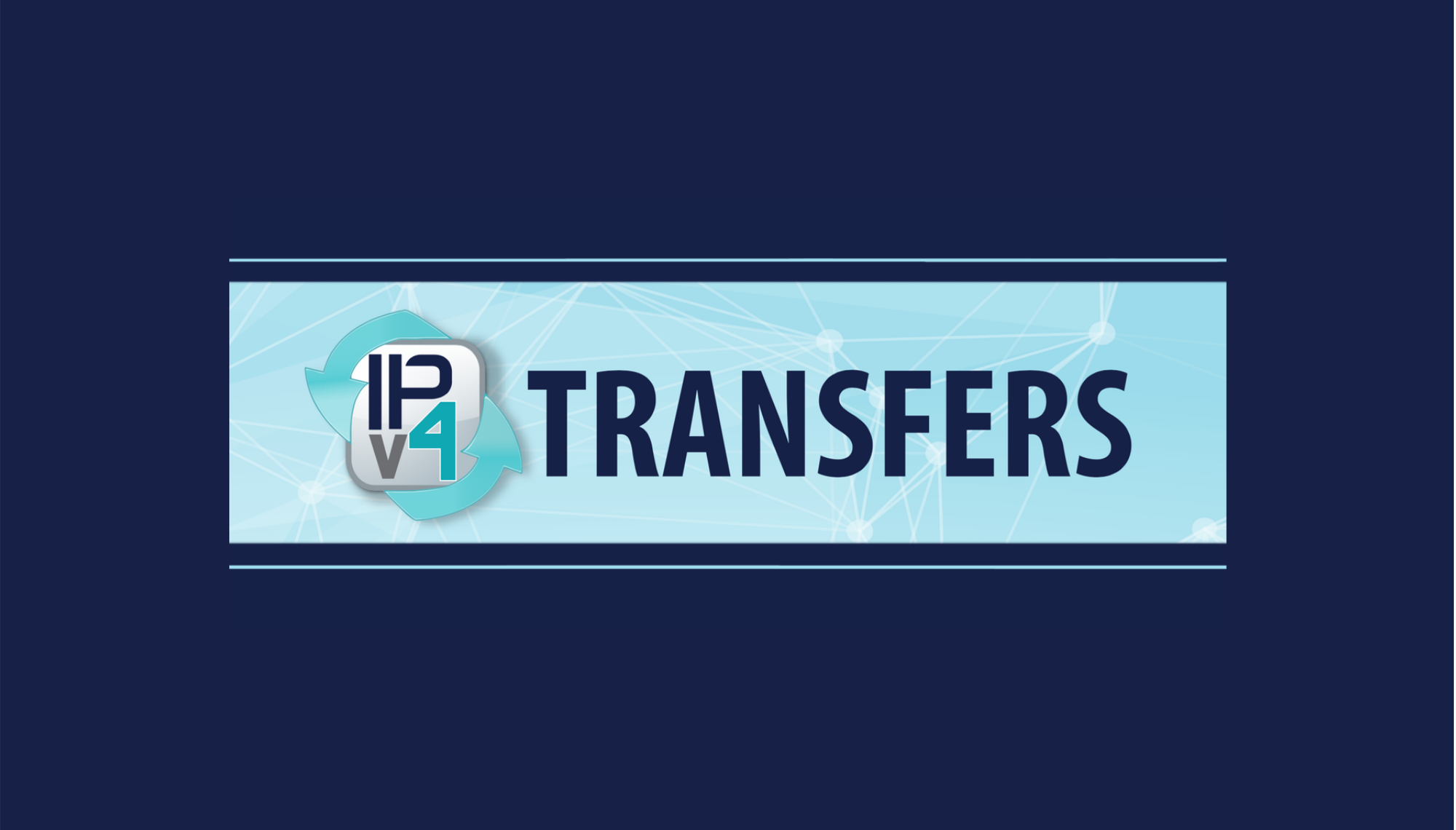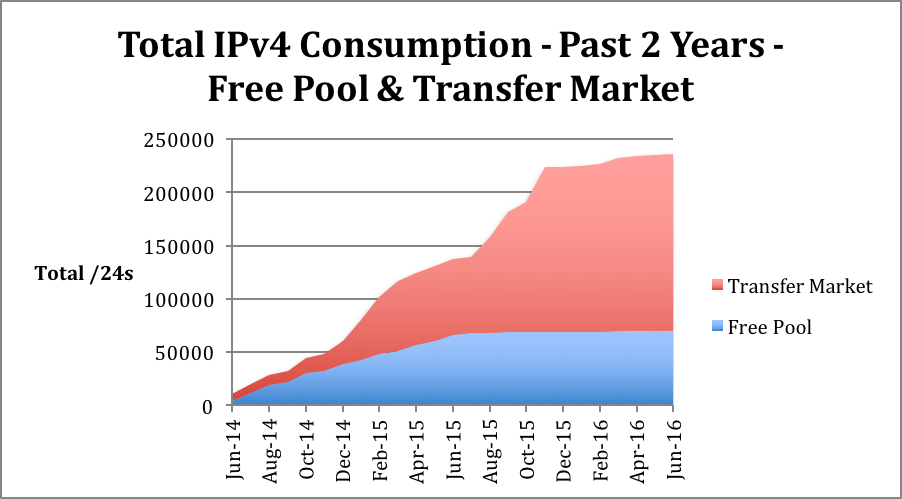
IPv4 Transfer Market [Archived]
OUT OF DATE?
Here in the Vault, information is published in its final form and then not changed or updated. As a result, some content, specifically links to other pages and other references, may be out-of-date or no longer available.
As most of you know, ARIN reached full IPv4 depletion more than one year ago on 24 September 2015. What you might not know is that the ARIN community started preparing for depletion long before then.
Creation of the IPv4 Transfer Market
Many years prior to depletion, the community discussed and adopted a specified recipient transfer policy to continue to fulfill need for IPv4 addresses within this region. Prior to the implementation of that policy, IPv4 addresses could be transferred only based on a business merger, acquisition or similar event (when one organization took over an operating network from another organization). Specified recipient transfer policies allow organizations with unused IPv4 addresses to release them to organizations in need of IPv4 addresses.
The first specified recipient transfer policy back in 2009, in effect, created the IPv4 transfer market – a pool of organizations with unused IPv4 addresses and a corresponding pool of networks in need of IPv4 addresses but unable to fulfill their need via ARIN’s free pool. Transfer policies were created to prepare the region for IPv4 depletion, and they’ve proven to be extremely useful to the community.
Use of the IPv4 Transfer Market
Since we hit full depletion, the IPv4 transfer market has been very active. Need-based transfer requests have increased almost 400% in that time period with a total of almost 100,000 /24s changing hands in those transfers. In fact, it appears the IPv4 transfer market has caused total IPv4 consumption to remain more or less the same. The chart below illustrates the total number of IPv4 /24s issued from ARIN’s free pool and obtained via the transfer market starting approximately a year before IPv4 depletion.
As you can see, the drop in IPv4 addresses issued from the free pool post-depletion was matched by a corresponding increase in the number of IPv4 addresses obtained on the transfer market.
We’re excited to play our part in carrying out the transfer policies created by the ARIN community. In my following posts, I will share a few things we’ve observed from the transfer market that might help guide your organization through the process if you’re seeking to release or obtain IPv4 addresses via the transfer market.
OUT OF DATE?
Here in the Vault, information is published in its final form and then not changed or updated. As a result, some content, specifically links to other pages and other references, may be out-of-date or no longer available.

